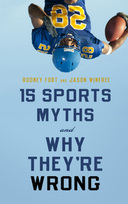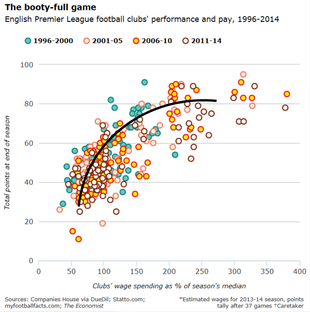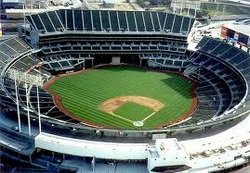The growth of the modern sports competition is inherently linked to the rise in sports broadcasting. Today, there are nearly 100 dedicated sports channels available on European satellite television. As these have grown in number, so too have the bargaining power of sports organisers. This has resulted in broadcasting revenue becoming the most important source of income for sports team owners. Two give just two examples, the Premier League broadcasting rights for the seasons 2016-2019 sold for £4 billion. The rights for the Summer Olympics sold for an almost identical amount.
Broadcasters have had an untold impact on the sports we watch. The changes include an exponential increase in the revenue generated by clubs, dramatic increases in player pay and changes in the structure and rules of the games themselves. It is to the third point I now focus.
David Butler previously wrote about the changing face of tennis, snooker and cricket, and the emergence of short forms of each of the sports. There is a belief that the extended nature of the traditional forms of these sports e.g. five day test in cricket, is not attractive to viewers who instead seek more 'exciting' or 'instant winner' contests.
Recently, a students in a sports economics module I am delivering brought a YouTube clip, explaining similar problems facing baseball to my attention. The four-and-a-half minute video can be seen here.
It starts by saying that the average game time for baseball in the US reached an all-time high in 2015 of 3 hours and 8 minutes. However, both hits and runs are down. Organisers are attempting to change the rules to overcome this problem. The issues facing the sport may be deeper. For example, American football games are both longer and have more dead time, yet its popularity eclipses that of its MLB counterparts.
The video is certainly worth a watch.





 RSS Feed
RSS Feed